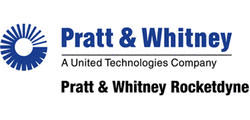Thu, Apr 28, 2011
Advertisement
More News
 TikToker Arrested After Landing His C182 in Antarctica
TikToker Arrested After Landing His C182 in Antarctica
19-Year-Old Pilot Was Attempting to Fly Solo to All Seven Continents On his journey to become the first pilot to land solo on all seven continents, 19-year-old Ethan Guo has hit a >[...]
 Classic Aero-TV: Versatile AND Practical - The All-Seeing Aeroprakt A-22 LSA
Classic Aero-TV: Versatile AND Practical - The All-Seeing Aeroprakt A-22 LSA
From 2017 (YouTube Edition): A Quality LSA For Well Under $100k… Aeroprakt unveiled its new LSA at the Deland Sport Aviation Showcase in November. Dennis Long, U.S. Importer>[...]
 ANN's Daily Aero-Term (06.27.25): Hazardous Weather Information
ANN's Daily Aero-Term (06.27.25): Hazardous Weather Information
Hazardous Weather Information Summary of significant meteorological information (SIGMET/WS), convective significant meteorological information (convective SIGMET/WST), urgent pilot>[...]
 ANN's Daily Aero-Linx (06.27.25)
ANN's Daily Aero-Linx (06.27.25)
Aero Linx: Historic Aircraft Association (HAA) The Historic Aircraft Association (HAA) was founded in 1979 with the aim of furthering the safe flying of historic aircraft in the UK>[...]
 Aero-News: Quote of the Day (06.27.25)
Aero-News: Quote of the Day (06.27.25)
"We would like to remember Liam not just for the way he left this world, but for how he lived in it... Liam was fearless, not necessarily because he wasn't afraid but because he re>[...]
blog comments powered by Disqus




